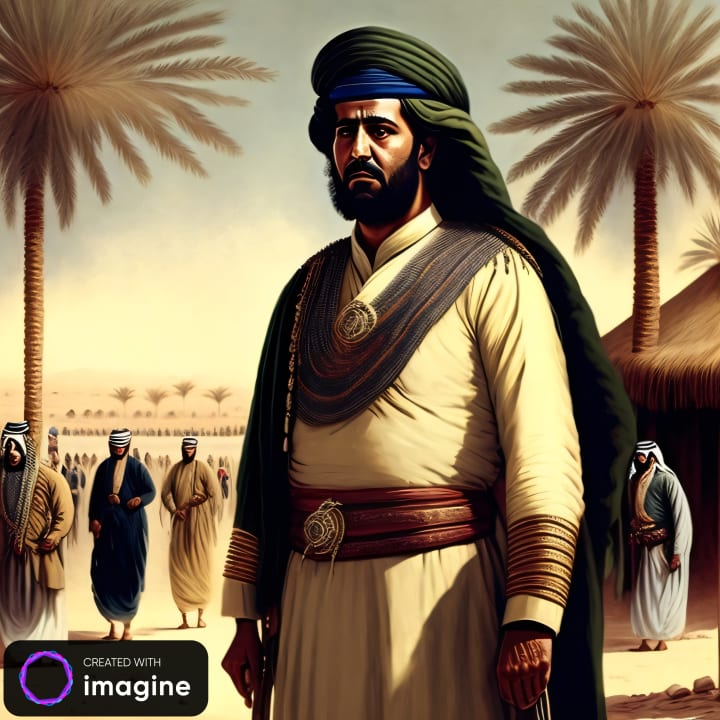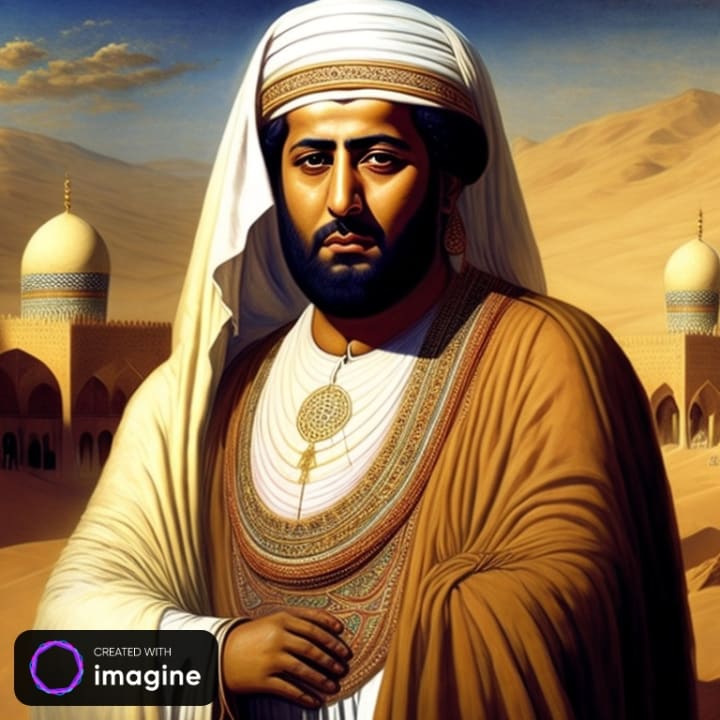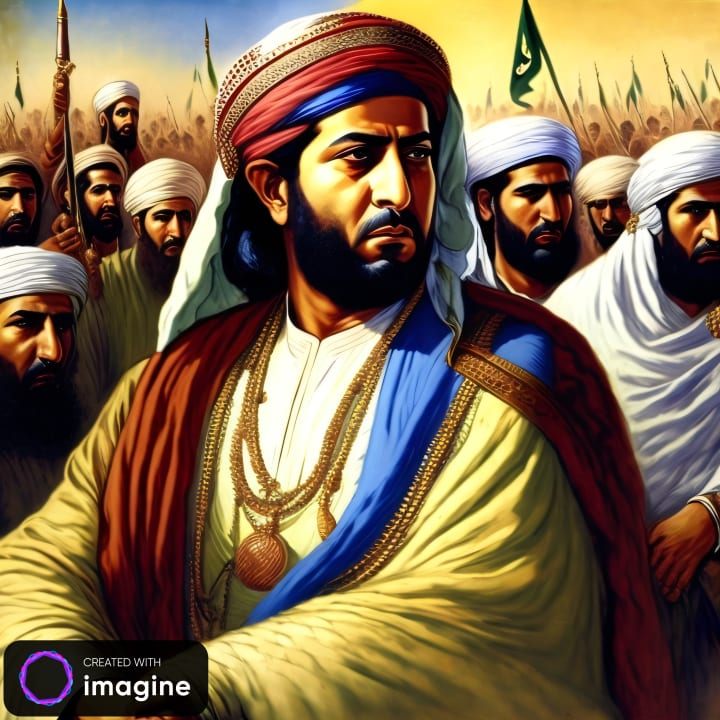
Khalid bin Waleed, also known as Sword of Allah, was one of the greatest warriors in the early Islamic era. He was born in the Arabian Peninsula in the year 592 CE, into the Banu Makhzum tribe, which was one of the most prominent tribes in Mecca at that time. His father, Waleed bin Al-Mughira, was a respected leader of the tribe and was known for his bravery and military skills.
Khalid grew up in a society that was marked by tribal feuds and constant conflicts. He learned the art of warfare from his father and other prominent warriors in his tribe. He also received a good education and was known for his eloquence and intelligence.

When the Prophet Muhammad began preaching Islam in Mecca, Khalid was initially opposed to the new religion. He saw it as a threat to the traditional way of life in Arabia, and he was also concerned about the potential loss of his tribe's power and influence.
However, after the Prophet migrated to Medina and began building a strong Muslim community there, Khalid's attitudes began to change. He saw how Islam brought unity and brotherhood among the Arabs, and he was impressed by the moral and spiritual teachings of the Quran.

In the year 629 CE, Khalid decided to embrace Islam and joined the Muslim army, which was now led by the Prophet himself. He quickly established himself as a skilled and fearless warrior, and he played a crucial role in many battles against the enemies of Islam.
One of his most famous battles was the Battle of Mu'tah in 629 CE, where he was appointed as a commander of the Muslim army. The Muslim forces were vastly outnumbered by the enemy, but Khalid showed remarkable courage and leadership, and his tactics and strategies led to a decisive victory for the Muslims.

After the death of the Prophet Muhammad in 632 CE, the Muslim community was faced with internal conflicts and divisions. Khalid played a key role in maintaining the unity of the Muslim forces and defending the newly established Islamic state against external threats.
He was appointed as a commander by the first Muslim Caliph, Abu Bakr, and he led several successful military campaigns against the Arab tribes who had rebelled against the new Islamic government. His most famous campaign was against the powerful Banu Hanifa tribe, who had refused to pay taxes to the Islamic state. Khalid led a small but highly skilled army against the Banu Hanifa, and he defeated them in a series of battles that lasted for several months.

Despite his many victories, Khalid faced several challenges during his military career. He was accused of taking part in the assassination of a prominent Muslim leader, and he was temporarily removed from his position as a commander. However, he was later reinstated by the second Muslim Caliph, Umar, and he continued to serve the Islamic state until his death in 642 CE.
Khalid bin Waleed was a complex figure in Islamic history. He was a warrior who fought for the expansion of the Islamic state, but he was also a devout Muslim who was known for his piety and religious devotion. He was a skilled tactician and strategist, but he was also known for his generosity and compassion towards his enemies.

His legacy has inspired many Muslims throughout history, and he is still revered as one of the greatest military commanders in Islamic history. His life is a testament to the power of faith, courage, and determination in the face of adversity, and his story will continue to inspire generations to come.
Please Do Like, Comment, Share & Subscribe To Support Me.






Comments
There are no comments for this story
Be the first to respond and start the conversation.